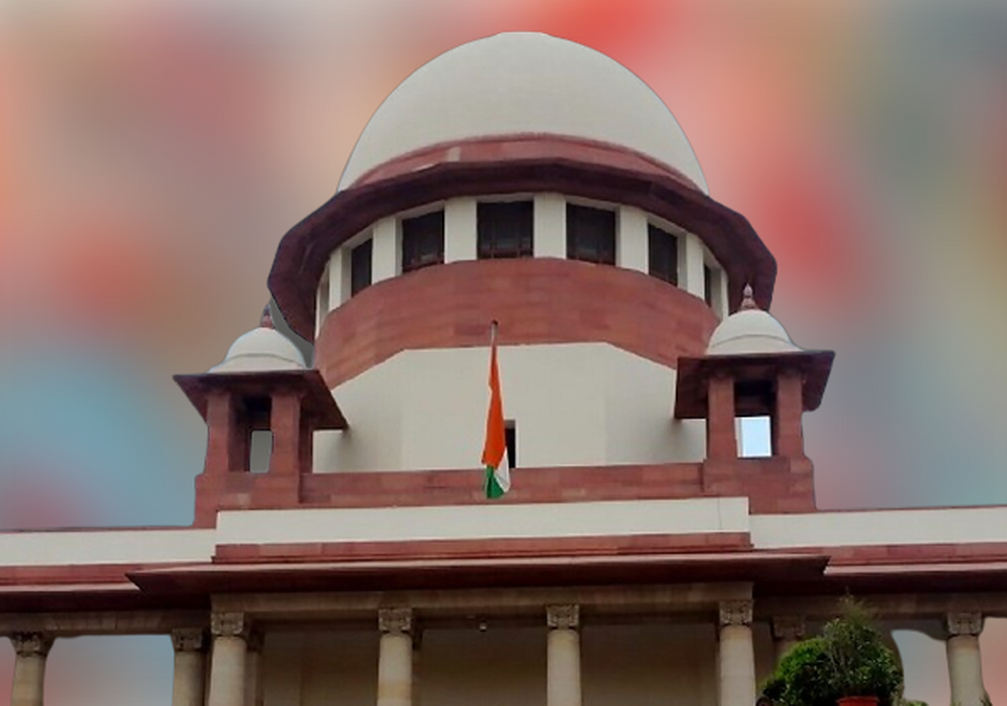Petition challenging compulsory retirement can be entertained only if it pertains to non-application of mind & mala fides but not natural justice:Delhi HC

Read Judgment: Ashok Kumar Aggarwal vs. Union of India
Pankaj Bajpai
New Delhi, September 29, 2021: The Delhi High Court has recently opined that they can entertain writ petition challenging compulsory retirement under Rule 56(j) of Fundamental Rules, only on grounds of non-application of mind and mala fides and not principles of natural justice.
The Division Bench of Chief Justice D.N. Patel and Justice V. Kameswar Rao held that neither Central Administrative Tribunal (CAT) nor respondents had committed any error while passing orders of Compulsory retirement, as compulsory retirement made u/Rule 56(j) involved no civil consequences and employee retired thereunder did not lose any of the rights attained before retirement.
While stating that such rule was not intended for taking any penal action against government servant, the Division Bench said that it did not require that any opportunity should be given to concerned government servant to show cause against his compulsory retirement.
Going by the background of the case, the Petitioner was appointed as Deputy Director of Enforcement (Delhi Zone) where he supervised investigation of cases concerning FERA.
Later on, a search was conducted by ED officers at business and residential premises of one hawala dealer and incriminating materials were seized resulting in arrest of the dealer.
The petitioner alleged that he faced severe pressure from certain higher authorities of ED in relation to the case and hence, had made a representation in July 1998 to Revenue Secretary in this regard. Subsequently, petitioner was placed under suspension w.e.f. December 28,1999 and two criminal cases were registered against him. Eventually, he was compulsorily retired by Respondents by invoking Rule 56(j) by order dated June 10,2019.
As O.A. preferred by Petitioner was dismissed by Central Administrative Tribunal (CAT), petitioner filed present petition, contending that order dated June 10,2019 of compulsory retiring petitioner was issued in violation of guidelines issued by respondents as regards timing for exercise of powers u/Rule 56(j).
After considering the submissions, the High Court observed that the Government servant serving under Union of India held office at pleasure of President of India as provided under Article 310 of the Constitution.
“Compulsory retirement was bound to have some adverse effect on Government servant who was compulsorily retired but the rule provided that such retirements could be made only after the officer had attained prescribed age. Government was empowered and entitled to compulsorily retire government servant in public interest to improve efficiency of administration or weed out people of doubtful integrity or who were corrupt but sufficient evidence was not available to take disciplinary action in accordance with the rules”, observed the Court.
The Bench elaborated that in overall assessment of a Central Government employee, even if there was acquittal from charges, Union of India (UOI) could always arrive at a conclusion that looking to entire service record and usefulness of petitioner into the services, he could be made to compulsorily retire from the services.
There was no ban or bar for Respondents that no compulsory retirement order could be passed whenever there was quashing of charges in any litigation between employee and Central Government, added the Bench.
The High Court reiterated that it was settled law that scope of judicial review was very limited in cases of compulsory retirement and was permissible on limited grounds such as non-application of mind or mala fides. Besides, court, in judicial review, could not sit in judgment over the same as an appellate authority.
“Principles of natural justice had no application in a case of compulsory retirement. An order of compulsory retirement was not a punishment nor attached any stigma to employee. Subjective satisfaction of Government in public interest, arrived at after considering entire service record of Petitioner, where principles of natural justice were not required to be observed while passing order of compulsory retirement as the order did not amount to punishment”, added the Court.
The High Court went on to say that in instant case, all facts were presented about petitioner and his entire service record was placed before Review Committee that arrived at subjective satisfaction and made recommendation for petitioner’s compulsory retirement in public interest, which was accepted by UOI and petitioner was made to compulsorily retire in public interest.
The petitioner mainly challenged the order on ground that he had succeeded in several litigations against UOI and hence, the order was tainted with malice in law.
But, it ought to be kept in mind that order of compulsory retirement u/Rule 56(j) was absolutely a separate, distinct exercise and an independent decision had been arrived at by UOI through recommendation of Review Committee.
Since there was no personal malice alleged by the petitioner upon members of Review Committee and rather there were serious allegations against petitioner of corruption and disproportionate assets including CBI cases, the High Court concluded the judgment in favour of the respondent.
Sign up for our weekly newsletter to stay up to date on our product, events featured blog, special offer and all of the exciting things that take place here at Legitquest.




Add a Comment